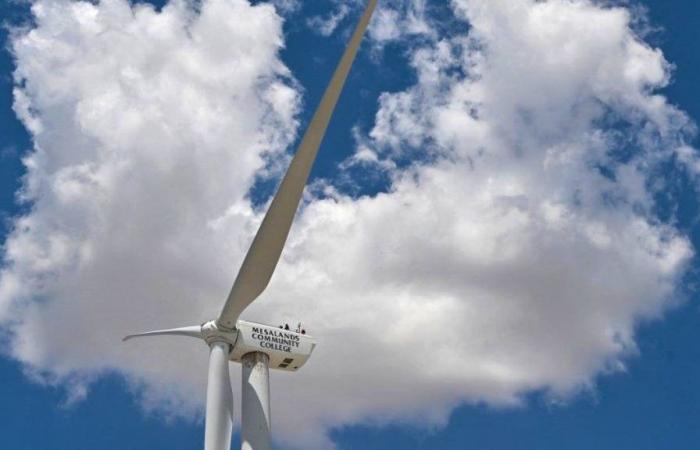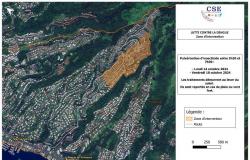Joe Biden’s government has accelerated the energy transition, approving ten new commercial offshore wind projects.
AFP
Under the guise of protecting whales, the anti-wind power movement is becoming increasingly vocal in the United States, attempting to block sustainable energy projects expanding on the east coast. By placing the animal cause at the heart of their campaigns, opponents of these new energy projects reach a wide audience because cetacean strandings attract many curious people to the beaches of the Atlantic, from Maine to New Jersey.
“During a rescue mission, I am almost immediately asked if it is because of the wind turbines,” assures AFP Lauren Brandkamp, team leader of the non-profit organization Whale and Dolphin Conservation in the Massachusetts.
Many anti-wind groups on Facebook now feature photos of marine mammals stranded on beaches. Opponents are calling to “preserve the east coast” or “save the whales” and have launched lawsuits against coastal projects in some states.
Caution “misplaced”
In recent years, increasing strandings of endangered species, such as the North Atlantic right whale, have only added grist to their mill. At the same time, Joe Biden’s government has accelerated the energy transition, approving ten new commercial offshore wind projects since 2021 with the aim of increasing renewable energy production.
Three wind platforms are currently operating in the United States and three others are under construction. However, no scientific evidence links the deaths of whales to these projects and studies instead blame collisions with ships or infectious diseases.
“I am happy to see all this attention paid to the protection of whales but it is a little misplaced,” laments Lauren Brandkamp. She emphasizes that during rescue missions, people are often receptive to her association’s educational messages on biodiversity and animal protection. But on social networks, the tone is completely different: “more hostile, more skeptical,” she says.
The anti-wind movement and conspiracy groups on social networks claim that the noise generated during the development of an offshore platform affects the whales’ sonars and disorients them, sometimes to the point of death. However, scientific teams whose work is dedicated to offshore wind activities and their possible interference with marine life have not detected any suspicious deaths.
Ecosystems under pressure
Scientist Douglas Nowacek, who is part of a US government research project on the potential impacts of wind turbines on marine animals, told AFP that he frequently observes whales swimming near wind turbine surveys. and has never yet observed “changes in behavior” or distress signals in these mammals.
“We have no scientific evidence indicating that offshore wind turbines are responsible for deaths” of animals, “and nothing that would approach the mortalities linked to oil activities,” he adds, stressing that oil prospecting and Offshore gas requires a technique almost 10,000 times noisier than wind power.
In New Jersey, bastion of the anti-wind movement, the director of the animal protection association Save Coastal Wildlife, Jenna Reynolds, says she is “neither for nor against” these new energy projects. She notes, however, the absence of evidence supporting the arguments put forward by the conspiracy theorists and emphasizes that she has not heard criticism from Europe, where offshore wind power is nothing new.
Ms Reynolds has seen her coastal region change dramatically in recent decades, with ship traffic increasing and large marine mammals dangerously closer to beaches. Like Lauren Brandkamp, she points to changes in ecosystems and warmer waters, which encourage certain species such as whales to swim further north, making interactions with boats in port areas like New York or Boston very complex.
“We are now observing manatees migrating here from Florida,” explains Jenna Reynolds, “very concerned about the immense impact of global warming on marine life.”
“I know that wind power will have an impact. Nothing is perfect,” she says. “But I prefer a wind platform to an oil well in our oceans.”
(afp)






